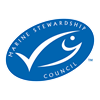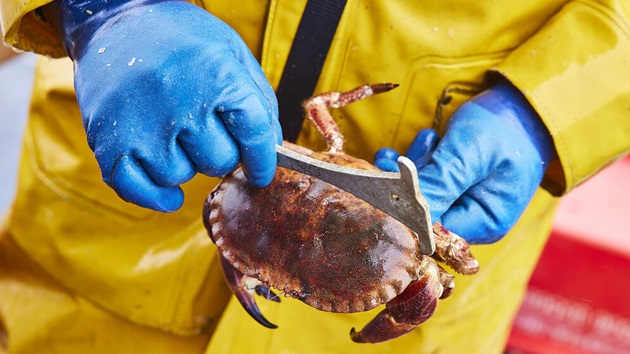The Australia Orange Roughy Fishery is being assessed to the MSC Fisheries Standard by a third-party auditor, MRAG Americas. It has now passed through the Public Comment Draft Report stage.
Why is the orange roughy fishery going through an MSC assessment?
The MSC Fisheries Standard is the world’s leading standard for sustainable fishing, aligned with UN principles. While fishing for orange roughy can happen regardless of MSC certification, there are several perceived benefits for fisheries pursuing certification, including:
- Market access
- Social licence to operate
- Stakeholder engagement
The fishery attempted certification in 2020-2021, but an independent adjudicator ruled it ineligible after upholding an objection about its conservation status.
What’s the timeline, and how is stakeholder feedback captured?
Any stakeholder can register their interest in an MSC fishery assessment, provide comments regarding sustainability concerns, and be encouraged to participate at various stages of the assessment process.
Stakeholder comments can lead to scoring changes, from a change in fishery performance where a fishery may no longer meet MSC requirements to the adoption of conditions of certification. Stakeholder input may also lead to no material change in assessment scoring.

At each stage of the assessment journey, eligible stakeholders can shape the outcome at site visits and through comments and objections with independent adjudication.
Find out how to engage with a fishery assessment.
What stakeholder concerns have been registered so far?
Stakeholder input into the Orange Roughy fishery up to the point of the Public Comment stage has focused on the fishery’s performance regarding:
- targeting a conservation-dependent listed species
- habitat interactions
- traceability input
- quota setting against scientific advice.
Stakeholder comments are captured in Appendix 11.4 of the fishery’s Public Comment Draft Report.
The assessor’s response to these stakeholders' concerns will be documented in the Final Draft Report, which is due toward the end of May 2024.
View the latest assessment documents for this fishery.
Who is assessing the fishery, and what are they looking for?
The Australia Orange Roughy fishery is being independently assessed to the MSC Fisheries Standard by MRAG Americas, a conformity assessment body accredited to carry out MSC assessments by Assurance Services International.
The assessors are looking to see that the fishery can demonstrate high performance against the three principles of the MSC Fisheries Standard:
- Sustainable fish stocks
- Minimising environmental impacts
- Effective fisheries management
What's the MSC's role in all of this?
The Marine Stewardship Council is an international non-profit on a mission to end overfishing by setting the world’s leading standards for sustainable fishing and seafood supply chain assurance. It’s the MSC’s role to:
- Ensure the MSC’s standards are applied correctly, e.g. through peer review and technical oversight
- Maintain and evolve our standards to reflect the latest accepted science
- Ensure our process is accessible and transparent for stakeholders to get involved
Read more about how the MSC meet best practice.
How can a fishery catching a species that is conservation-dependent be sustainable?
Australia’s Environment Protection and Biodiversity Conservation Act (1999) is the legal framework for protecting the Australian environment. Under the Act, various conservation categories exist for at-risk species, ranging from extinct to conservation-dependent.
A conservation-dependent listing is a proactive categorisation designed to prevent a native fish species from becoming vulnerable, endangered or critically endangered.
Conservation-dependent species are subject to management plans to stop their decline and support their recovery. Management actions within this plan may still allow the commercial targeting of the species so long as the species' long-term survival is maximised.
First listed as conservation-dependent in 2006, the Orange Roughy fishery has showcased a recovery rate under the management plan. This allowed the fishery to demonstrate certain performance criteria to enter assessment to the MSC Fisheries Standard whilst still being subject to a conservation-dependent status.
What’s changed since the fishery was last assessed? How is the fishery eligible to be assessed?
The Australian Orange Roughy fishery is now being assessed to the MSC Fisheries Standard Version 3, while the previous assessment was under version 2.01.
MSC Fisheries Standard Version 3 requirements (released in October 2022) expect:
- a higher level of fishery performance, including (but not limited to) stronger requirements linking to ghost gear impacts
- evidence requirements, such as a level of external verification to help determine how a fishery addresses any Endangered, Threatened and Protected species interactions.
A new two-step process within the MSC Fisheries Standard Version 3 allows well-managed species classified as endangered, threatened, or protected to still be assessed with a precautionary approach so long as they meet a set of scientific criteria.
Using this process, MRAG Americas determined that the Australian Orange Roughy can be assessed as a target species whilst subject to a domestic level of environmental protection.
Allowing species to be reclassified if they meet these criteria will mean well-managed populations or populations that are inherently resilient to exploitation can be eligible for MSC certification. This enables assessors to respond to real-time data on a species and fishery rather than being fully reliant on listings that may not be up to date.



